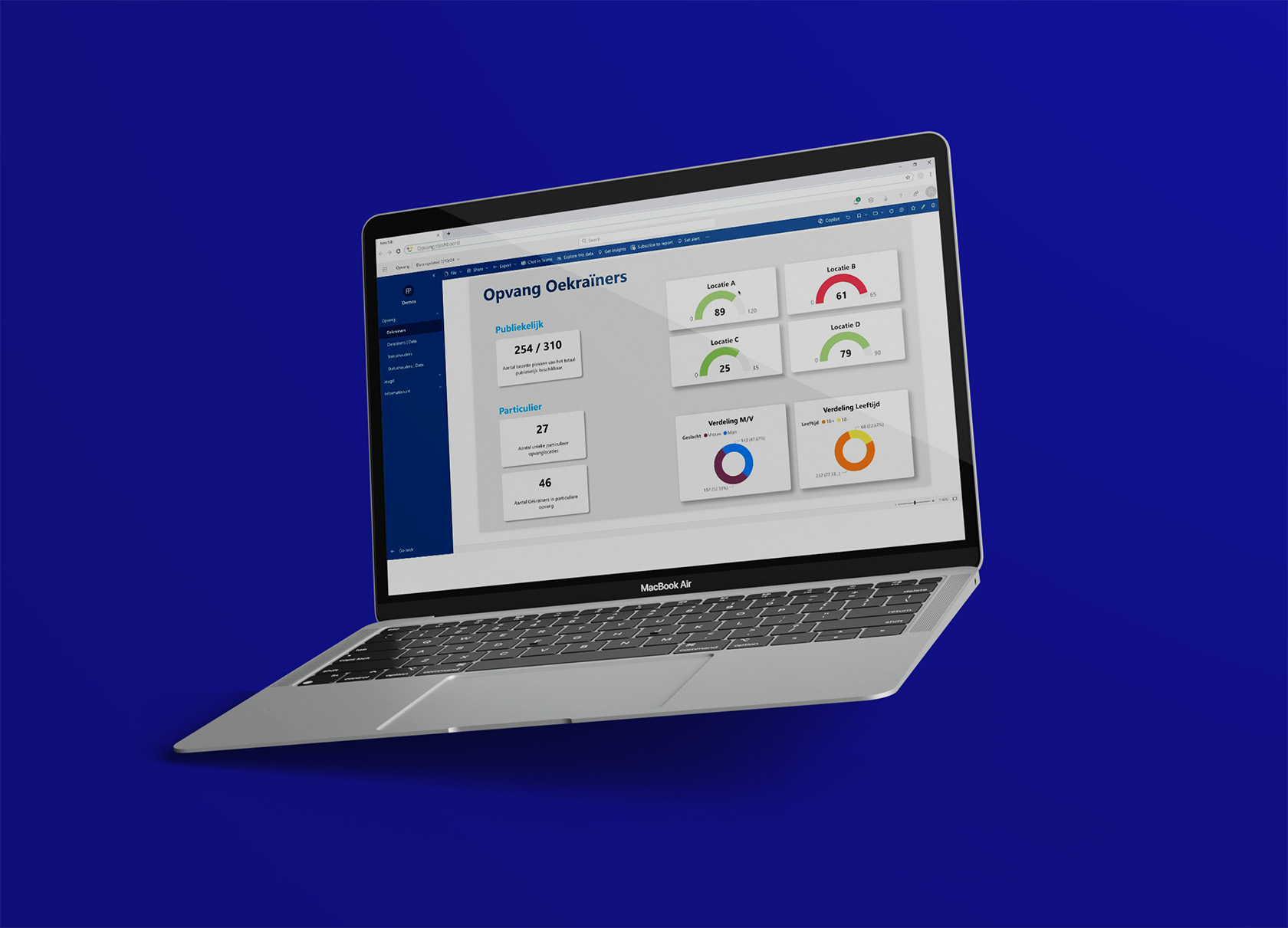Uitdagingen in het sociaal domein oplossen met datagedreven inzichten
In het complexe landschap van het sociaal domein, waar effectief informatiebeheer cruciaal maar uitdagend is, kan het benutten van datagestuurde inzichten via dashboards chaotische processen transformeren in gestroomlijnde, efficiënte activiteiten.

Amsterdam, 09 – 2024
In het sociaal domein is het effectief beheren van informatie vaak een ontmoedigende taak. Gemeenten worden geconfronteerd met tal van uitdagingen als het gaat om het centraliseren en beheren van gegevens.
Het bijhouden van de huisvesting van Oekraïense vluchtelingen en andere asielzoekers kan bijvoorbeeld chaotisch verlopen zonder een goed systeem. Deze inefficiëntie leidt er vaak toe dat er vaak gebeld moet worden naar opvangcentra om de beschikbaarheid te controleren. Daarnaast is het hebben van een volledig overzicht van alle interacties met de informatiebalie een significante hindernis. Tevens worstelt de jeugdsector met het beheer van dossierinformatie door het ontbreken van een centraal overzicht.
Dit zijn slechts een paar voorbeelden van de problemen op het gebied van informatiemanagement in het sociaal domein. Om deze obstakels te overwinnen, is het cruciaal om gegevens uit verschillende bronnen te verzamelen en ervoor te zorgen dat deze interpreteerbaar zijn voor de teams die verantwoordelijk zijn voor het nemen van beslissingen.
De kracht van dashboards
Maak kennis met dashboards: krachtige tools die zijn ontworpen om de broodnodige inzichten op basis van gegevens te verschaffen. Onze reis begint met een intakeproces, waarbij we samen met medewerkers de belangrijkste prestatie-indicatoren (KPI’s) identificeren die essentieel zijn voor het nemen van geïnformeerde, datagestuurde beslissingen. Deze eerste stap is cruciaal om de basis te leggen voor een effectieve dashboardontwikkeling.
Eindgebruikers betrekken voor voortdurende verbetering
Tijdens het ontwikkelingsproces hanteren we een iteratieve aanpak, waarbij we voortdurend eindgebruikers betrekken om feedback te verzamelen. Deze gezamenlijke inspanning helpt ons de dashboards te verfijnen, nieuwe KPI’s te identificeren of KPI’s te verwijderen die niet de benodigde informatie vastleggen. Deze iteratieve feedbacklus zorgt ervoor dat de dashboards evolueren om aan de werkelijke behoeften van de gebruikers te voldoen.
Microsoft Fabric gebruiken
Tegelijkertijd zorgen we ervoor dat de benodigde gegevens direct beschikbaar zijn voor analyse. Door gebruik te maken van Microsoft Fabric – een end-to-end analyse- en dataplatform – kunnen we moeiteloos gegevens opnemen, transformeren en visualiseren. Met dit krachtige platform kunnen we het gegevensbeheerproces stroomlijnen en bruikbare inzichten leveren.

De kracht van een goed dashboard
Bruikbare inzichten leveren
Het eindresultaat? Dashboards op maat voor het sociaal domein, met visuals die gebruikers in staat stellen om geïnformeerde, datagestuurde beslissingen te nemen. Deze dashboards bieden ook de flexibiliteit om door te drillen naar de onderliggende gegevens, zodat gebruikers hun filters kunnen aanpassen en diepere inzichten kunnen krijgen.
Conclusie
Concluderend kan worden gesteld dat het aanpakken van uitdagingen op het gebied van informatiebeheer in het sociaal domein een allesomvattende aanpak vereist. Door eindgebruikers te betrekken, feedback te herhalen en krachtige tools zoals Microsoft Fabric te gebruiken, kunnen we dashboards maken die ruwe gegevens omzetten in bruikbare inzichten. Deze dashboards bieden niet alleen een duidelijk overzicht, maar stellen organisaties bovendien in staat om weloverwogen beslissingen te nemen, wat uiteindelijk hun efficiëntie en effectiviteit ten goede komt.



